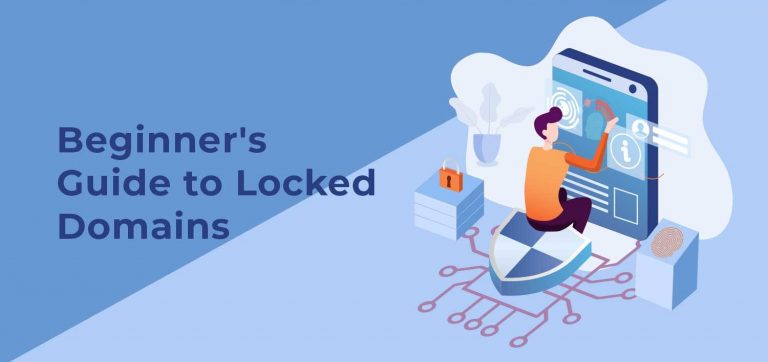Registering a domain name is not the same as having a website. To be able to use your domain name to call up your website, you will need web hosting. Your domain name (also known as your website address) describes the space your website occupies on the Internet. While space cannot be literally owned by anyone, you need the assistance of a broker (called a registrar) to acquire it.
Table of Contents
What is a locked domain?
Also referred to as Registrar Locked, a locked domain can be viewed as a security feature. When you register a domain name, you are required to provide some personal information to your registrar. This information is used to show that you are the lawful ‘owner’ of the domain and that only you and other authorised parties are allowed to make any changes.
What are the benefits of a locked domain?
Actions that locked domains protect you from include:
- Changing name servers that would cause your website to point in a wrong direction
- Hijacking ownership of your website
- Hostile transfers of your domain name to an unlawful party
How will someone know I have locked the domain?
First, you have not locked the domain. Legally, your registrar is responsible for enforcing the lock. Second, the personal information that you provided is added to a registry where anyone can search to learn who owns a particular domain name.
Your personal information does not have to be visible. You can arrange with your web host to have your information replaced with their Domain Privacy service. Sometimes, there is a cost for this extra service, so be sure to check with your Host.
Finally, anyone can search for domain name owners in the WHOIS database. This is one way to learn if a domain is locked, as well as who currently owns it.
Are domains locked forever?
The legal obligation (regulated by the Internet Corporation for Assigned Names and Numbers – ICANN) is for an initial period of 60-days. Even if you decide to switch web hosts or sell the domain name during this period, it is not possible.
There are other reasons a domain may be locked, and as a result, the length of the lock would be determined by the situation which created the locked domain.
Why lock domains?
Domains are locked for security reasons. When a new domain is registered or transferred, or the personal information in the domain registry is changed, the previously mentioned 60 day lock goes into effect.
Domains are locked for legal reasons. A qualifying court of law may order that a domain be locked, and for how long if a legal dispute over ownership or infringement is brought. In such a situation, there is very little your registrar can do but obey the court order.
Domains are locked for non-payment of fees. Some web hosts will prevent the transfer or other changes to a domain if all fees and balances have not been settled.
Can I unlock a locked domain?
Sure. Some registrars require that you contact them to unlock the domain, while others allow you to do this from within your account management system. Ask your web host for help if you need to lock a domain but are unsure of what to do.
Should I unlock a locked domain?
Domains are unlocked for transfer purposes. In order to sell a domain, the lock must be lifted. The lift facilitates the change in ownership information.
Domains are unlocked to change DNS settings. Perhaps you have switched web hosts but would like to keep your domain name. In this case, you will need to unlock your domain to allow access to your DNS settings. You will need to configure them to point to your new servers.
Why can’t I lock my domain?
Not all countries allow their domains to be locked. Some country-code top-level domains (ccTLDs) including .co.uk, .co, .nz, and .au do not support domain locking. These domains cannot be locked.
Summary
A locked domain can be your friend, as it protects you from unlawful activity to your domain registration. Should you decide to unlock your domain, however, you may need to contact your web host, because you may not have direct access to these settings.
You invested time and money in your domain, so you are advised to keep it locked, even after the mandatory 60 day period has passed. There are legitimate reasons that you may want to unlock your domain, such as for sale.
Remember:
- Outside of ICANN, a court of law can order a freeze or lock on a domain name which would prevent all parties involved from making any changes until the ongoing dispute is finalised.
- Some ccTLDs cannot be domain locked, so do not be surprised should this happen.






